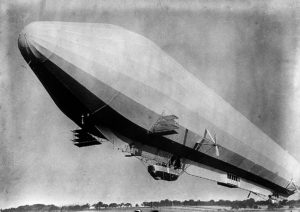
Photo, Library of Congress, Public Domain
The airship captain stood on the bridge, holding his pocket chronometer in his hand as he examined the railroad timetable pinned to the bulkhead. With his other hand, he reached into his vest pocket and pulled out a cigar, the gears in his artificial arm whirring softly. He placed the cigar in his mouth but did not light it.
According to the built-in gyro-compass and altimeter in his timepiece, the Carolina was cruising due south, a thousand feet above the desert scrub-land. From out the port window, he could see a pile of jagged rocks known as the Dragoon Mountains. Dead ahead, through a gap in the desolate range, ran the tracks of the Southern Pacific Railroad.
Momentarily, their target came into view. “Behold, gentlemen,” he addressed his crew. “The 6:10 from El Paso, right on time.” A steam locomotive chugged along the track pulling a dozen cars behind it. “Mr. Denali, match course and speed.”
The Apache pilot grunted assent and turned the wheel. The airship’s steam engine let out a high-pitched whine as the drive propellers brought the craft’s speed up to sixty knots. The Carolina approached from behind the train, flying high above the tracks, passing over the cars until it reached one painted blue with white stenciled letters reading “U. S. TREASURY.”
The lighter-than-air craft hovered ten feet above the train as if both were standing still. If the train crew had seen them, they’d taken no action. Not that it would matter. There would be no way for them to summon help. If they sped up, the airship could easily keep pace.
“Once again, the game is on!” The captain knelt to open the hatch at the bottom of the gondola. “Ready, Mr. Heckler?”
“Javohl, mein Kapitan,” replied the stout engineer, taking a quick glance at the steam pressure and temperature gauges of his beloved Porter-Allen Mark 3. Next to the open hatch lay a broad flat wooden box of his own design, which was fastened to the overhead by a thick steel cable. He gave it a push and it dropped through the opening, jerking to a halt as the cable went taut. Hesitating for just a moment, he hopped aboard the platform and grabbed hold of the cable.
The Captain turned a brass-plated crank to spool out the cable, lowering his ship-mate into the open air. Heckler showed no fear as he dangled above the clattering train. The box on which he stood concealed a circular saw blade, which was connected to the airship’s engine by a flexible drive shaft. When the box touched down on the roof of the train car, he pushed a lever to engage the saw.
It only took a few seconds to cut out a four-foot diameter circle, which fell into the car with a loud crash. “What in blazes?” Someone shouted, followed by “Bandits!” and a number of stronger oaths. Bullets pinged off the saw blade from below, causing Heckler to jump. He held onto the cable with all his might as his perch wobbled precariously.
“Start the pump!” Heckler called to his crew mates above. A rumbling noise added to the clatter of the steam engine. Alongside the support cable and the drive shaft ran a thick rubber hose, which stiffened as gas flowed through it into the train car. The shooting stopped, replaced by the sounds of coughing and retching.
Heckler tugged on the cable and was quickly pulled back up. As he re-entered the gondola, the sweat was running down his face and dripping off the curled ends of his mustache. The red-faced engineer moved the saw out of the way, and then tossed down a loop of sturdy chain with twelve-inch metal hooks attached at regular intervals. It fell through the hole and clattered into the car below.
“Our turn now, Mr. Poirier.” The Captain grabbed two gas masks from the wall and handed one to his chief of security, a bald-headed Cajun gunslinger. Poirier went first, scrambling down the chain using the metal hooks as a makeshift ladder. The Captain followed him.
“Drop the guns!” barked Poirier, drawing his weapon in a flash. “Hands up!”
The Captain was surprised to see two blue-uniformed soldiers, wearing goggles and kerchiefs over their faces. One of them gave a muffled shout. “It’s him! The Clockwork Caballero!” Even with his black cowboy hat and gas mask concealing his features, they knew who he was.
“Give that man a gold star,” he said as he hopped off the chain to the floor. He had to shout to be heard over the rumble of the airship above. “Please cooperate and no one gets hurt.”
The newspapers had coined his nickname, for his mechanical arm and his expert horsemanship. He was notorious throughout the Southwest for performing elaborate robberies, each one cleverer than the last.
The two bandits each grabbed a guard, binding their wrists behind their backs with metal cuffs. The Captain got a metal bar from his rucksack and tossed a second one to Poirier. They used these to jam the doors at both ends of the car, and then fastened a handcuffed soldier to each with a chain.
“Sergeant Harris!” cried one of the guards between coughs. “Robbery! We need help!”
“Hold your tongue, sir,” said the Caballero, brandishing a six-inch knife, “If you mean to keep it.” In over a dozen robberies, he hadn’t killed anyone, at least not intentionally.
“Hell and damnation,” said Poirier. “All I see is barrels of grub and bags of oats.”
“There, in the corner!” The captain pointed to a six-foot-tall safe. “Open her up, Poirier.”
“De rien.” The Cajun pulled a strange-looking pistol from his belt and jammed its pointy end into the safe’s locking mechanism. He squeezed the trigger, injecting its contents behind the combination dial, causing frosty white clouds of gas to billow out the edges. A quick tap with a mallet was enough to shatter the frozen lock. He swung the door open and gave a loud whistle at the sacks of gold piled up inside.
To be continued…

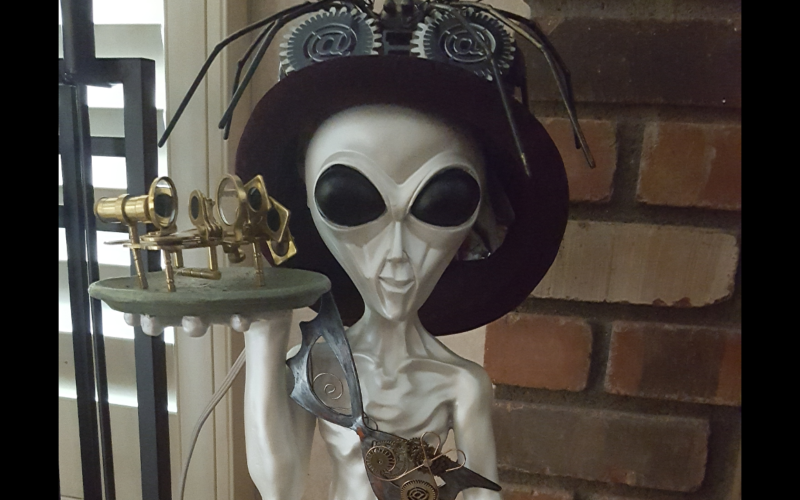

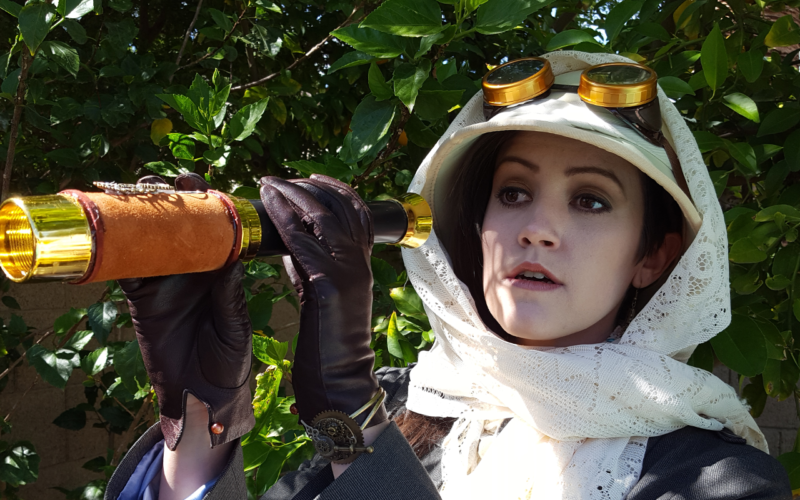

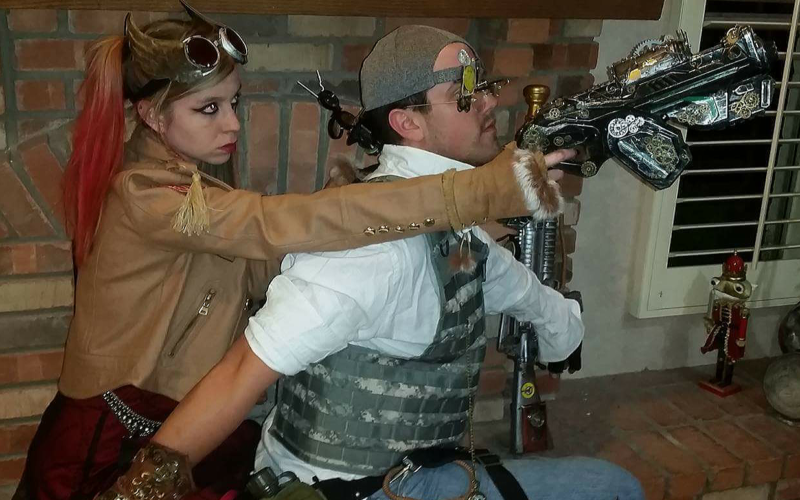

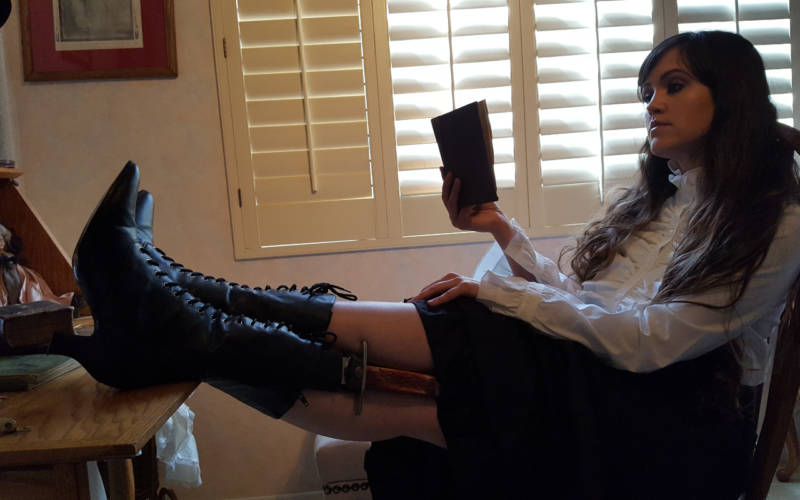


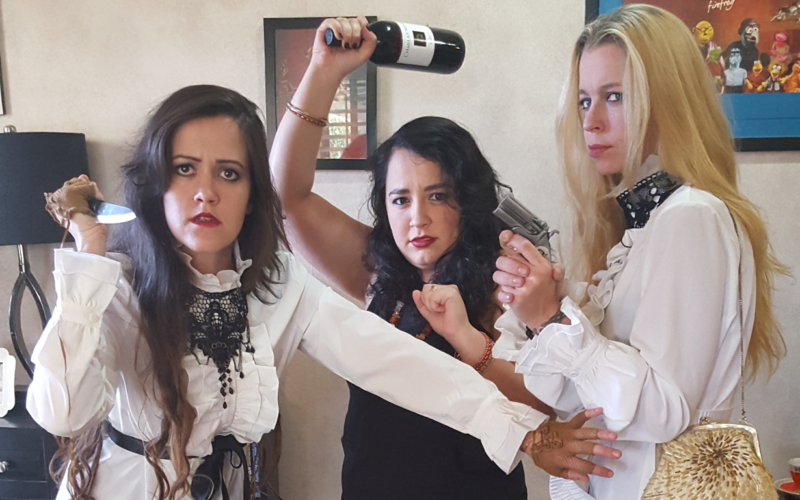



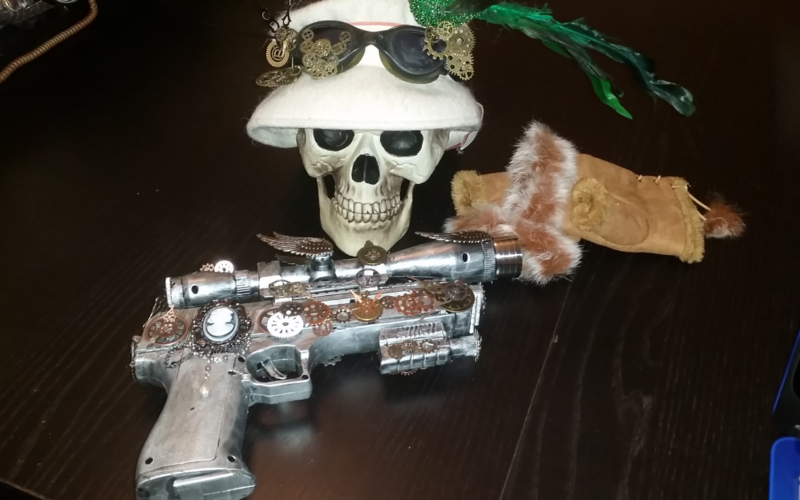
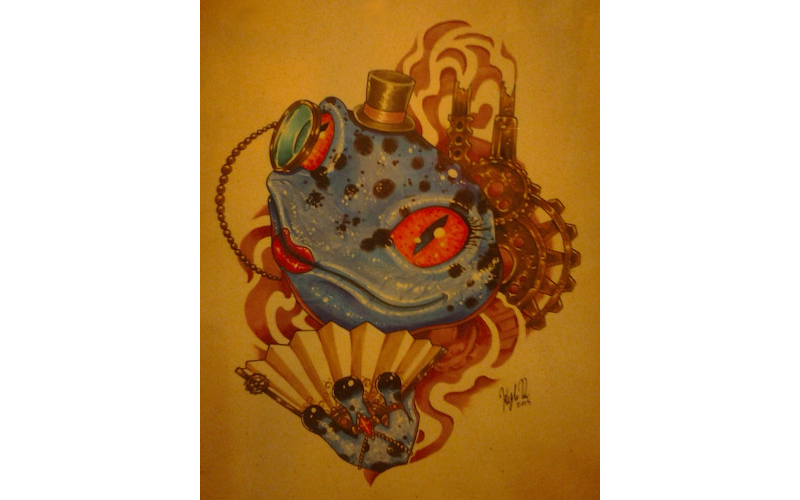
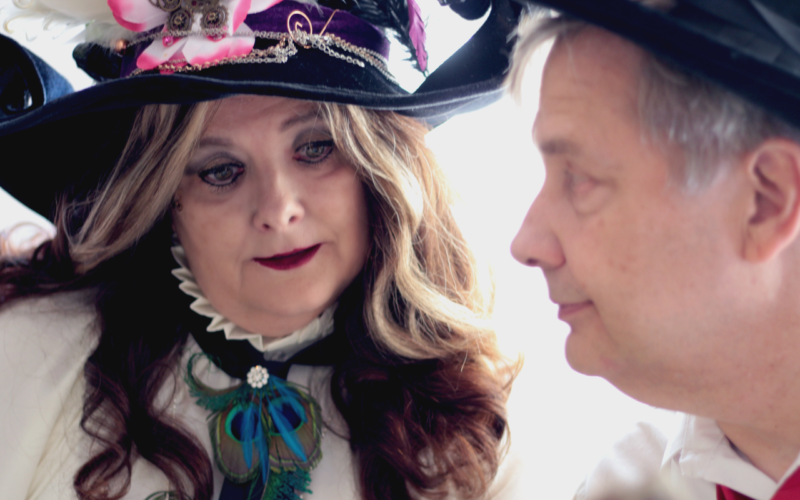
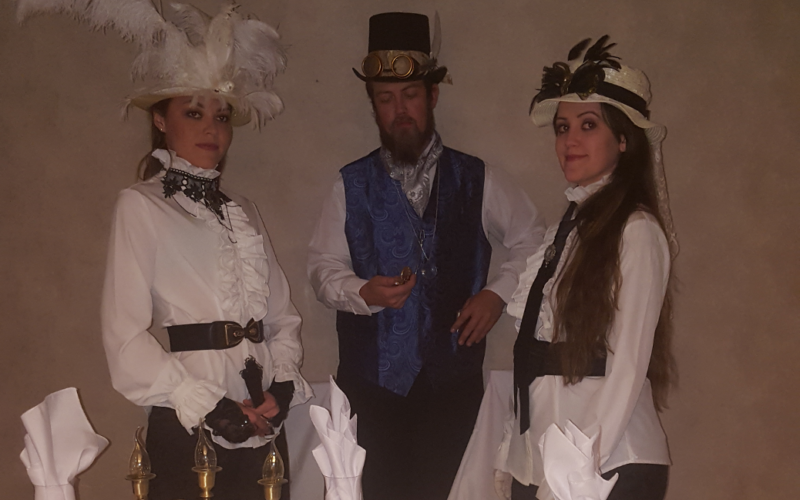
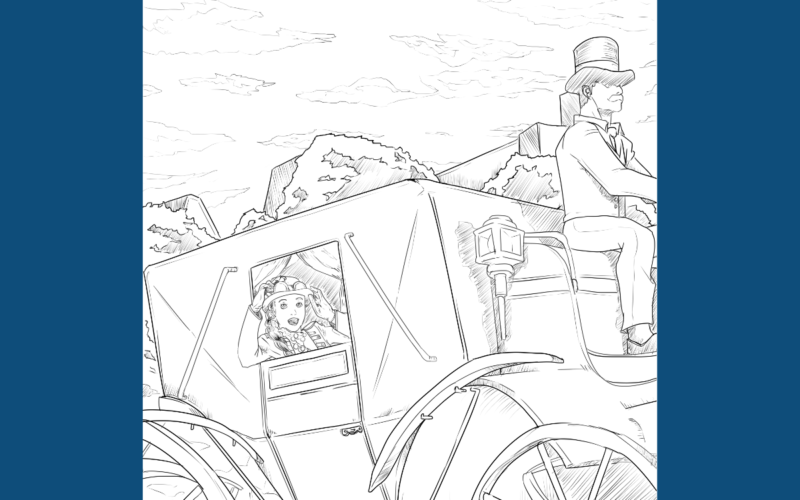
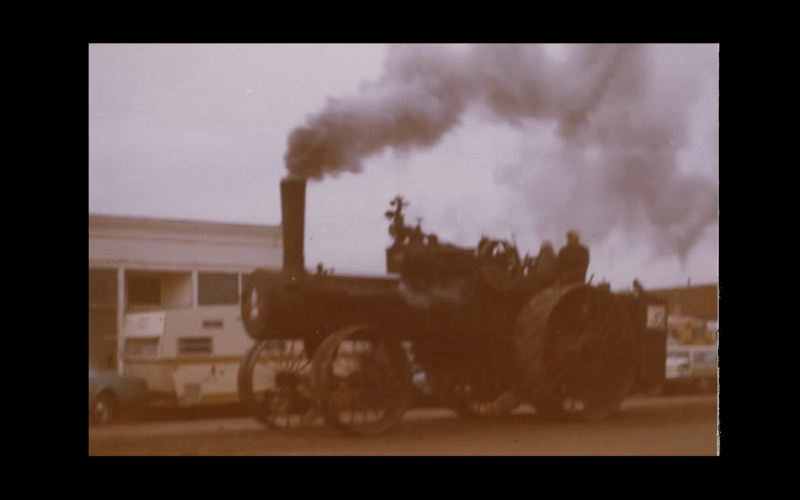
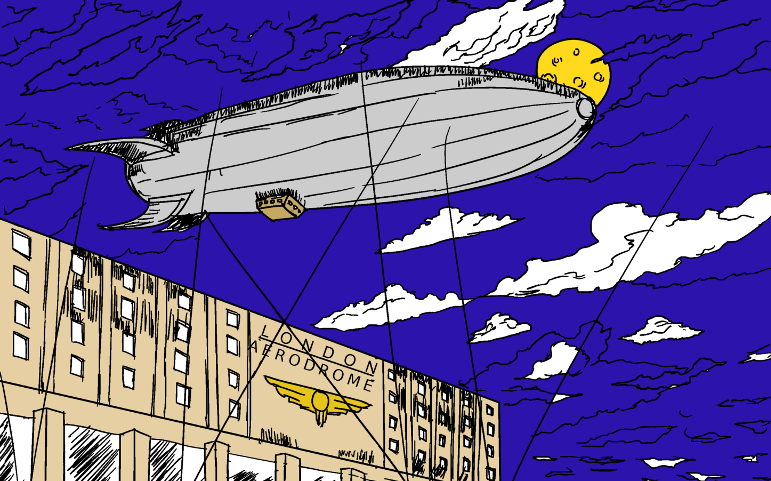
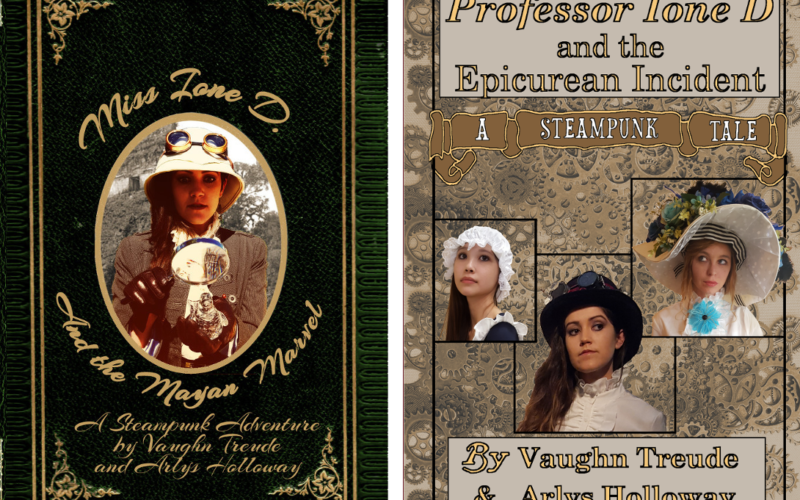
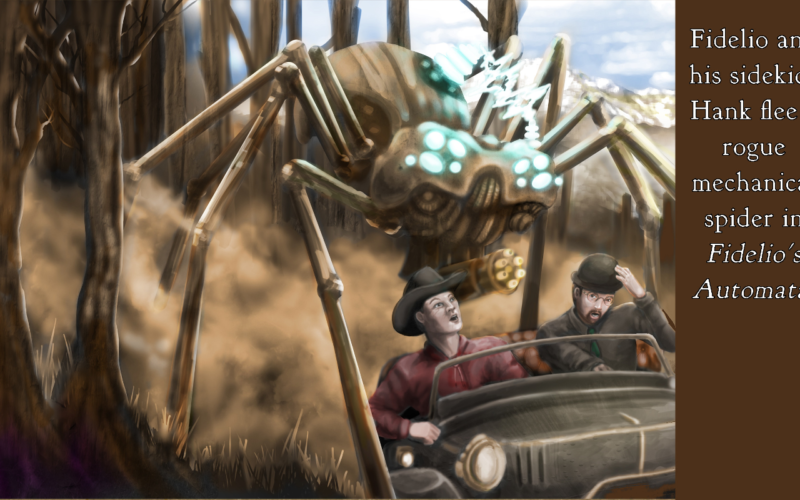

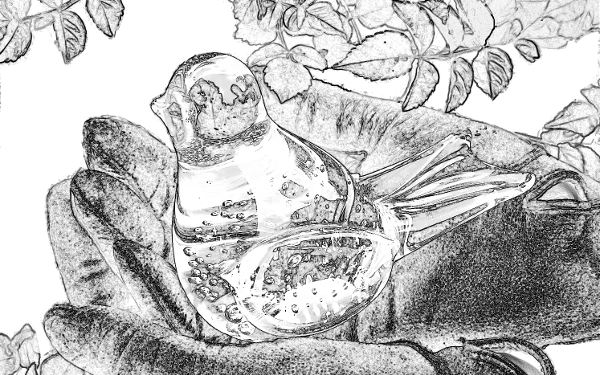
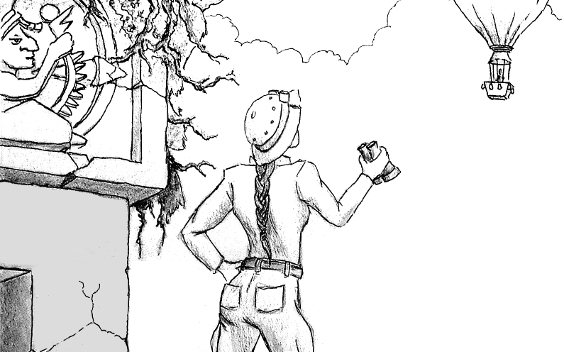

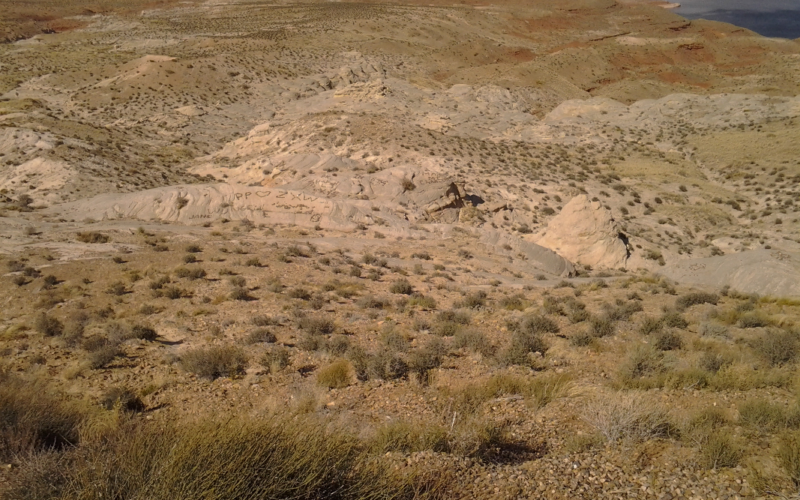
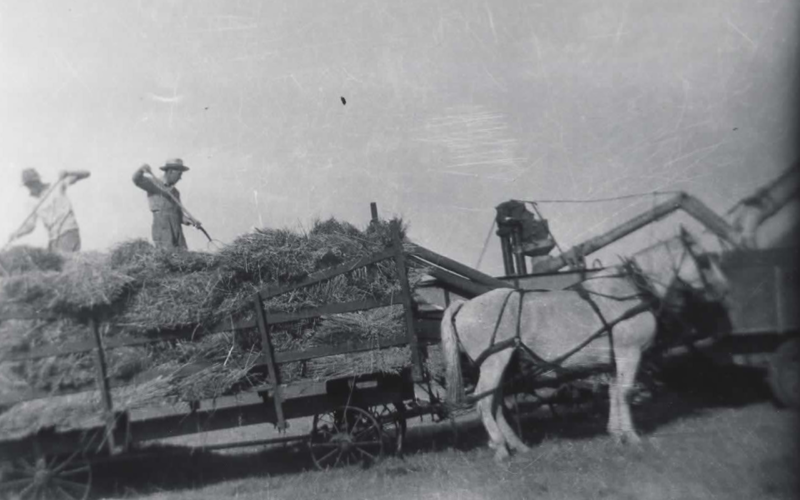


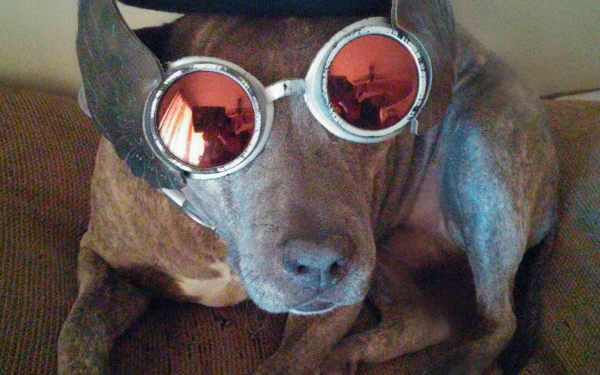

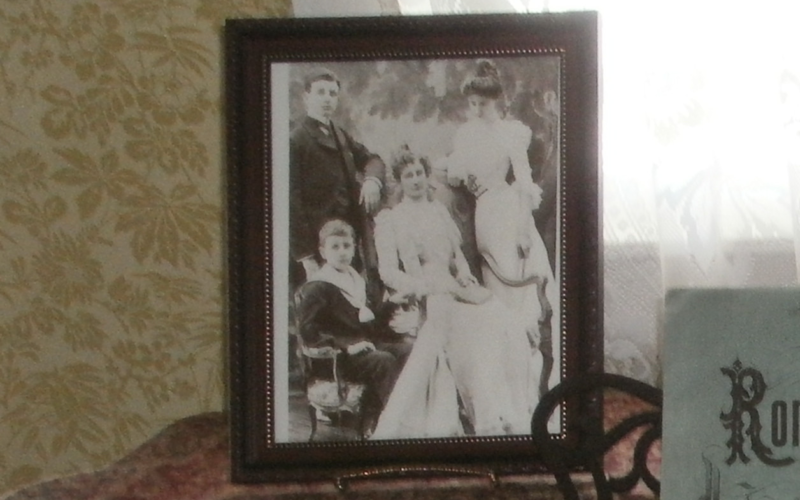

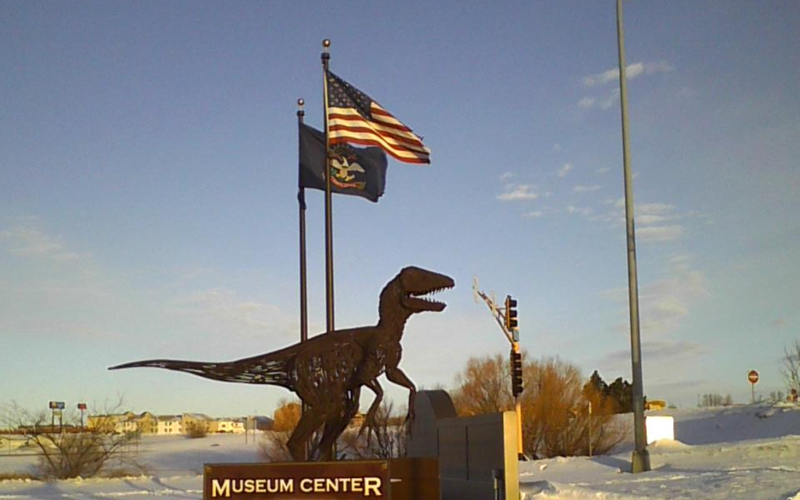
I heard that’s the reason that they call the gambling machines one arm bandit. Because of the Clockwork Caballero. Could it be true?